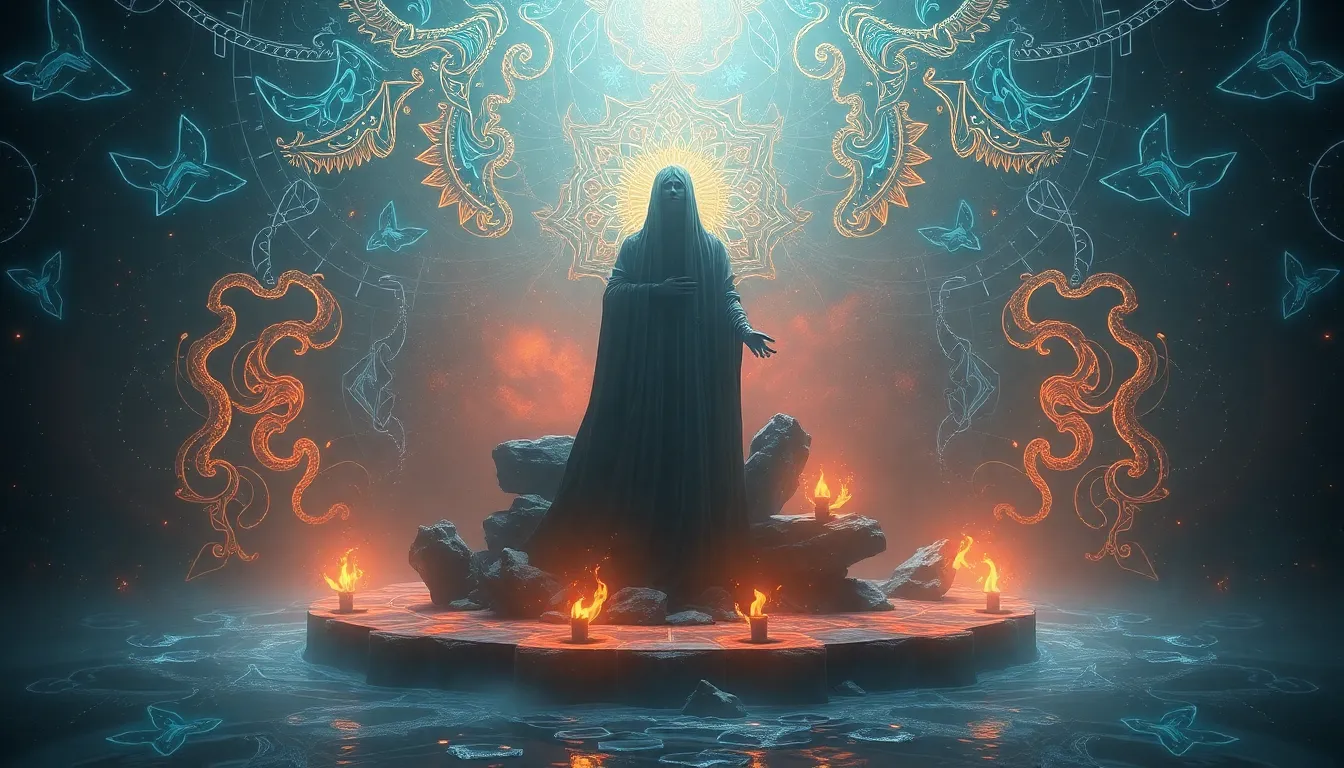The Alchemical Journey: Transformations That Ignite the Imagination
Introduction to Alchemy and Its Significance
Alchemy, often shrouded in mystery and intrigue, is a practice that transcends mere chemistry; it is a philosophical and spiritual quest for transformation. Historically, alchemy is defined as the medieval forerunner of chemistry, with practitioners seeking to transform base metals into noble ones, such as gold, and to discover the elixir of life. Metaphorically, alchemy represents the process of personal transformation, wherein individuals seek to transmute their inner selves, igniting the imagination and fostering creativity.
The Historical Roots of Alchemy
Alchemy has roots in ancient civilizations, with its origins traced back to Egypt and Greece, and it flourished during the Middle Ages and the Renaissance. The alchemical tradition synthesized ideas from various cultures, combining philosophy, spirituality, and early scientific practices.
- Hermes Trismegistus: Often regarded as the father of alchemy, this mythical figure is credited with the Hermetic texts that laid the foundation for alchemical thought.
- Paracelsus: A Swiss physician and alchemist, Paracelsus emphasized the importance of chemistry in medicine and introduced the idea of the “spirit of life” in alchemical processes.
The Four Stages of Alchemical Transformation
The alchemical process is traditionally divided into four stages, each symbolizing a significant phase of transformation:
- Calcination: The process of burning away impurities, representing the destruction of false beliefs and ego.
- Dissolution: The breaking down of solid structures, signifying emotional release and the acceptance of vulnerability.
- Separation: The identification of what is essential, allowing individuals to discern their true desires and values.
- Conjunction: The harmonious integration of the purified aspects, resulting in a unified self and creative potential.
Each stage reflects profound implications for personal growth and self-exploration, serving as a roadmap for individuals seeking transformation.
Alchemy and the Creative Process
Alchemical principles resonate deeply within the realm of artistic creation. Many artists and writers have drawn upon the transformative aspects of alchemy to fuel their creative endeavors. The journey of creation often mirrors the alchemical process, where initial chaos gives way to clarity and beauty.
- Salvador Dalí: The surrealist artist often infused his works with alchemical symbolism, representing the subconscious transformation of dreams into art.
- J.K. Rowling: In the “Harry Potter” series, themes of transformation and identity echo the alchemical journey, with characters undergoing significant personal growth.
The Role of Imagination in Transformation
Imagination is a crucial element in the alchemical process, serving as the catalyst for transformation. The interplay between imagination and personal metamorphosis allows individuals to envision new possibilities, unlocking creative potential.
To harness imagination for creative breakthroughs, one can employ various techniques:
- Visualization: Creating mental images of desired outcomes helps in manifesting goals.
- Mind Mapping: Organizing thoughts visually can lead to new connections and ideas.
- Free Writing: Allowing thoughts to flow onto paper without judgment encourages creative exploration.
Modern Interpretations of Alchemy
Contemporary thinkers and creators have reinterpreted alchemical symbols and concepts, finding relevance in psychology and self-help. Alchemy’s focus on transformation resonates in modern therapeutic practices, emphasizing personal growth and self-discovery.
In psychology, Carl Jung highlighted the significance of alchemical symbols as representations of psychological processes, suggesting that the journey of individuation mirrors the alchemical transformation of the self.
Alchemy in Literature and Mythology
Alchemical themes permeate classic literature and mythology, where storytelling serves as a vehicle for transformation and understanding. Many narratives explore the quest for knowledge, self-discovery, and the struggle against inner demons.
Examples include:
- Frankenstein by Mary Shelley: The story embodies the alchemical theme of creation and the consequences that follow.
- The Alchemist by Paulo Coelho: A modern tale of self-discovery and the pursuit of one’s personal legend, reflecting the alchemical journey.
Practical Applications of Alchemical Principles
Incorporating alchemical practices into daily life can facilitate personal transformation and ignite the imagination. Here are some strategies:
- Daily Reflection: Spend time journaling or meditating on personal goals and aspirations.
- Creative Rituals: Establish rituals that promote creativity, such as setting aside specific times for artistic exploration.
- Mindfulness Practices: Engage in mindfulness to cultivate awareness of thoughts and emotions, fostering a deeper understanding of oneself.
Challenges and Obstacles on the Alchemical Journey
As with any transformative process, challenges and obstacles are inevitable. Common hurdles in the alchemical journey include:
- Fear of failure
- Resistance to change
- Self-doubt
Overcoming these challenges often requires perseverance and resilience. Embracing vulnerability and viewing obstacles as opportunities for growth can lead to profound transformation.
Conclusion: Embracing the Alchemical Journey
The alchemical journey is a powerful metaphor for personal and creative transformation. By understanding the historical roots, stages of transformation, and the role of imagination, individuals can embark on their own journeys of self-discovery and creativity.
As we embrace the principles of alchemy in our lives, we can ignite our imaginations, foster resilience, and ultimately transform ourselves into the best versions of who we are meant to be.




